Chart of the South Circumpolar Regions
Shewing the Discovery Tracks of Cook, Weddell and Ross
Shewing the Discovery Tracks of Cook, Weddell and Ross
Two books constituting 'The botany of the Antarctic Voyage' by Joseph Dalton Hooker [1847] are available from SICD. Choose the book, then click 'See digitalized document', then click the folder icon top left for thumbnail pages. The illustrations in both books are towards the back. I recall that in one of the volumes they start on page 38 of the thumbnail pages.
(Sir) Joseph Dalton Hooker (1817-1911) came from an eminent family of naturalists and botanists and developed a passion for plants early in life, when, from the age of seven, he attended lectures given by his father on botany at Glasgow University. Travel stories that he heard as a child, particularly those related to the voyages of Captain Cook, would prove equally influential in the trajectory of Dalton's career.
After completing his medical training, Hooker signed on to the position of Assistant Surgeon aboard HMS Erebus. The Erebus and HMS Terror, under the command of renowned polar explorer, Captain James Clark Ross, left Britain in 1839 on a three year expedition - the last major voyage of discovery powered by sail alone - attempting to locate the south magnetic pole.
Further to his medical duties, Hooker's secondary role during the expedition was to collect, draw and catalogue botanical and zoological specimens he encountered both in Antarctica and in the many islands in the southern ocean that served as shelter during the harsh winters.
After returning to Britain, Hooker undertook the laborious job of preparing botanical works for publication that included studies of the plants he had collected during the Ross expedition as well as specimens lodged by by Cook and Darwin at the British Museum.
The 6-volume work that resulted was divided into three sections: 'Flora Antarctica' (from which the above illustration plates were obtained), 1847; 'Flora Novae-Zelandiae', 1853; and 'Flora Tasmaniae', 1859. Incidentally, the illustrator (trained in botanical drawing by Hooker himself) for the series was Walter Hood Fitch, who became one of the most famous Victorian nature artists.
Hooker had a particular interest in plant distribution and his own independent assessment of species variation just happened to coincide with certain observations put forward in Darwin's theory of evolution. It is no surprise that these men sought each other out and their lifelong close friendship began soon after Hooker's return from Antarctica. In an essay opening 'Flora Novae-Zelandiae', Hooker became the first scientist to go on record supporting the (
Antarctica was just the starting point in Hooker's illustrious career in science. He later undertook expeditions to the Himalayas, Palestine, Morocco and the United States; was appointed Director of Kew Gardens; published outstanding works on Indian and British plants and received numerous awards, including a knighthood and membership of the Royal Society. Hooker is regarded as one of the greatest botanical explorers in the history of science and this brief summary hardly begins to do justice to his contributions.
- Joseph Dalton Hooker at Plant Explorers.
- Australian Biographical Dictionary entry.
- The Joseph Dalton Hooker website (this is a fairly comprehensive and useful fansite).
- Works by Hooker at Botanicus.
- Works by Hooker at the Internet Archive.
- Works by Hooker at Project Gutenberg.
- Wikipedia article.
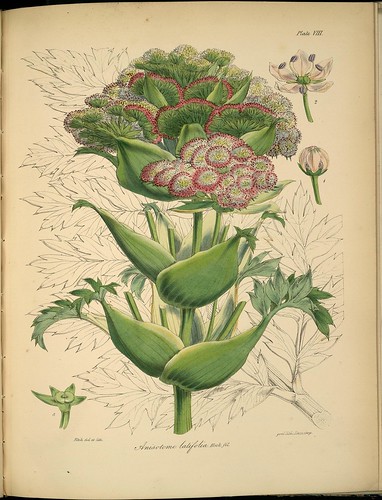
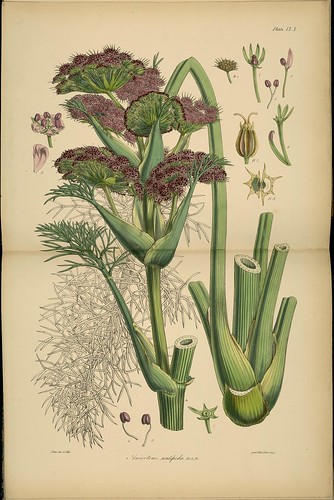
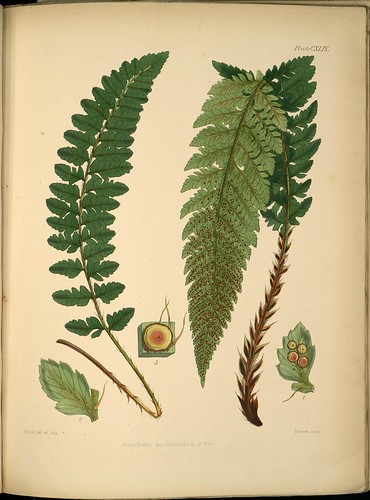
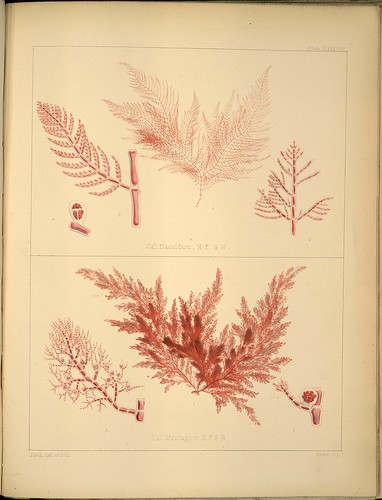
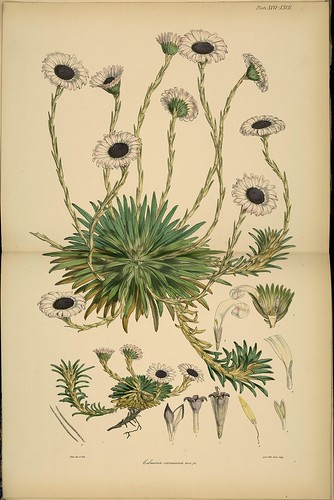
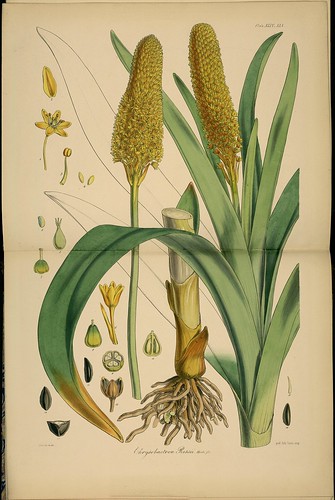
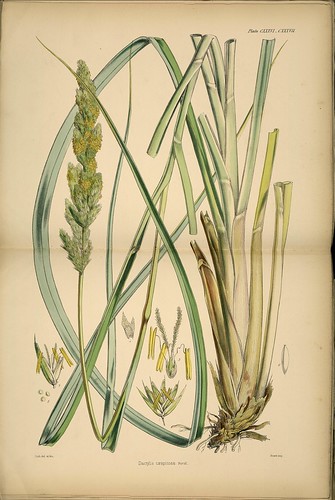
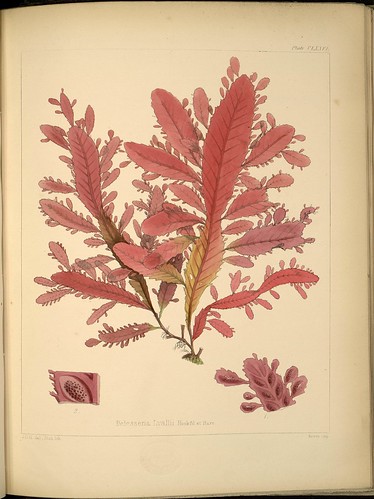
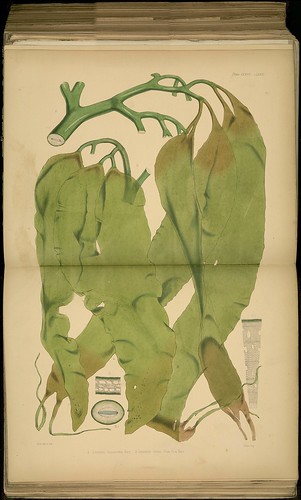
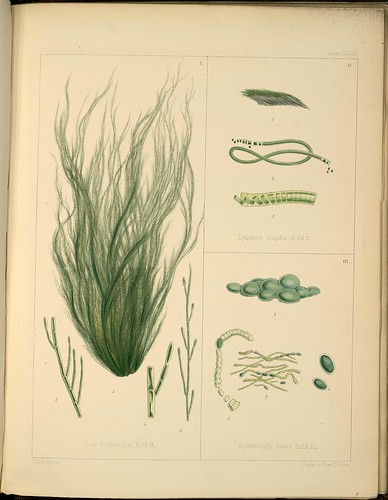
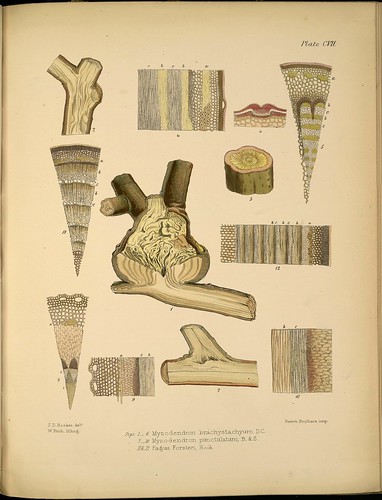
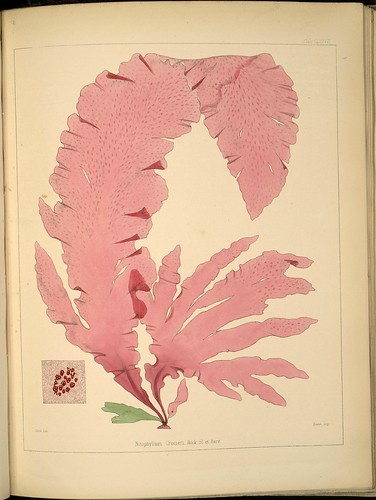
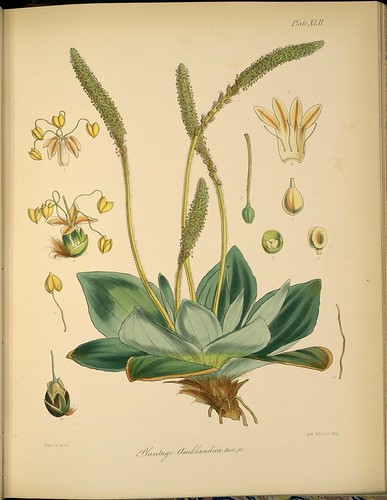
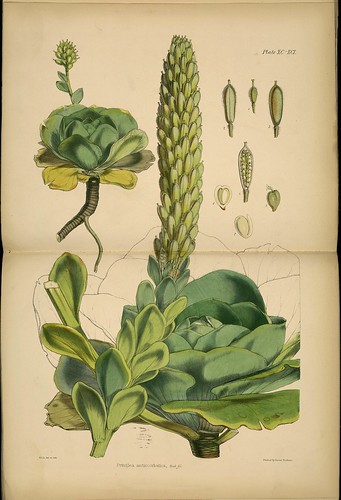
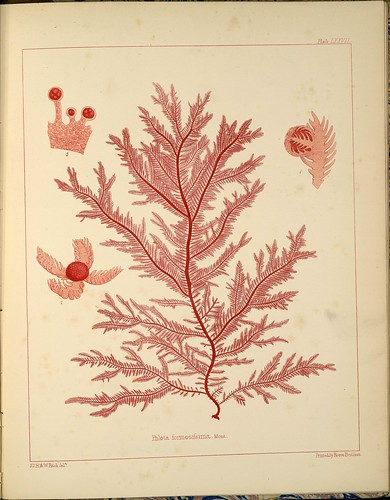

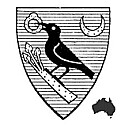








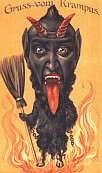
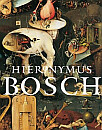
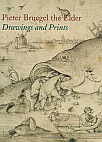
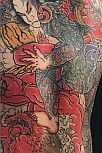
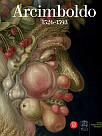

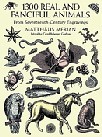
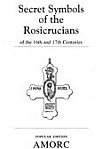


5 comments :
Those give a decidedly new impression of Antarctica, challenging the (presumably widely held? or just by me?) notion that it is really only home to flocks of fish-eating penguins. And scientists who eat whatever scientists eat. (Lichen, that's what Antarctic scientists eat. Just like reindeer do up in Lapland. Bits of lichen with ketchup. Fried lichen. Lichen matzo balls.)
To quote Dalton:
"Many of my best little lichens were gathered by hammering out the tufts or sitting on them till they thawed."
<--quote->He was particularly struck by one of Cook’s sailors killing penguins on Kerguelen’s Land, and he remembered thinking that, "I should be the happiest boy alive if ever I would see that wonderful arched rock, and knock penguins on the head".<--quote-->
And of course by Dalton I meant HOOKER.
Well, I love it UP TO knocking penguins on the head.
heyy, my name is ami + i'm doing an essay on antarctica, but i'm not getting much help here.. the essay is to be on for tommorrow!
someone help?
(:
thanks,
ami. x
Post a Comment
Comments are all moderated so don't waste your time spamming: they will never show up.
If you include ANY links that aren't pertinent to the blog post or discussion they will be deleted and a rash will break out in your underwear.
Also: please play the ball and not the person.
Note: only a member of this blog may post a comment.